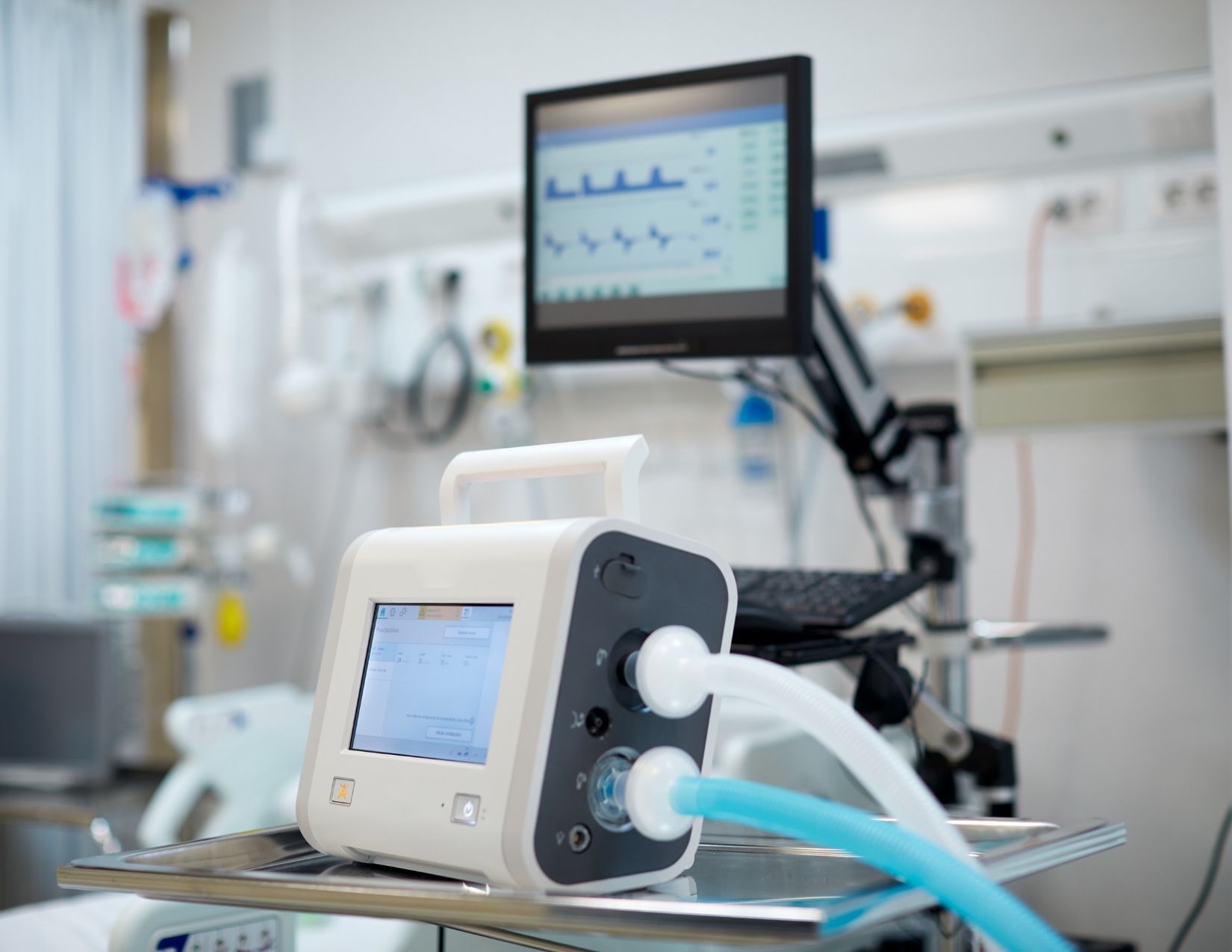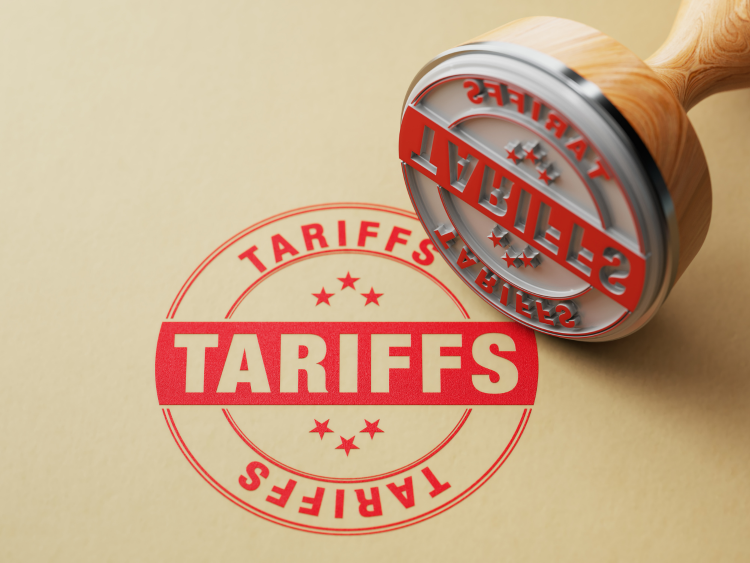
Innovation: The Prime Determinant in Consumer Goods Industry The face of consumer goods is dynamic, with innovation acting as a catalytic factor by bringing transformative changes that design the roadmap of the industry in the coming years. This paper explores how technology is impacting consumer goods research, delving into innovative advances that are spearheading a change in everything from new product development to market strategies.
1. Introduction
During this epoch in which technology drastically evolves from time to time, the consumer goods industry is on the front end of the revolution. This section will provide some insights into the transformative role that technology plays in consumer goods research.
The Technological Renaissance
Emergence of Advanced Analytics
The advent of advanced analytics has enabled consumer goods companies to gather and, most importantly, interpret large swathes of data. Of the large data set, the analytics focus on consumer preferences to market trends analysis for which it provides unmatched insight, thus enabling informed decision making. One of the validated major streams of advanced analytics forthwith is market forecasting. Tools using predictive analytics model historical data of the market through machine learning tools to predict future trends, and therefore consumer organizations can forecast demands earlier than the competition.
Real time data analytics allows consumer goods researchers to respond quickly to changing market dynamics. Companies with the capability to monitor live data streams can adjust the strategies of production, distribution, and advertising in real time to gain efficiencies and effectiveness.
2.2 Artificial Intelligence in Product Development
Artificial intelligence has come to redefine the very nature of product development. Market gaps can be identified, consumer preferences can be predicted, and even the design process of generative products can be contributed to by the use of AI algorithms. AI-enabled design thinking in the future through machine-learning-based algorithms that prompt the generation of design concepts fostered by historical data and consumer feedback data is bound to shape an innovative approach surely to accelerate the ideation phase in order to develop and bring more products to market faster.
Consumer goods companies are leveraging AI to introduce personalized products and shopping experiences. AI algorithms, by studying individual preferences and their behavior, can make product recommendations that are formulated by a customer's choice; in that way, it increases customer satisfaction.
3. Augmented Reality (AR) and Virtual Reality (VR) in Consumer Engagement
3.1 Immersive Shopping Experiences
AR and VR technologies have radically changed the way consumers interact with the products. Virtual showrooms and AR apps let a consumer visualize and experience a product in AR even before its purchase.
In the fashion, design, and Arts industries, AR powers virtual try-before-you-buy experiences. Virtual product demonstration offers a very powerful tool for most consumer goods. It allows a consumer to experience features and benefits of products in a simulated environment, enriching understanding and engagement.
3.2 Better Marketing Strategies
AR and VR are revolutionizing marketing strategies by developing immersive and interactive campaigns. From AR powered packaging to VR-based storytelling, consumer goods companies have started using these technologies to capture the interest of consumers. Ar-enabled packaging brings products to life through smartphones or AR gadgets. Scanning the product's package enables consumers to gain extra information or learn about videos and interactive content, significantly improving the user experience.
Consumer goods companies leverage VR to create compelling narratives around their brands. A highly immersive storytelling experience using VR touches and envelops consumers in the world of the brand, creating better emotional involvement and a deeper connection to the brand.
The supply chains for consumer goods look mammothly big in the face of this unfolding transparency revolution through blockchain technology. Every activity in the supply chain is therefore recorded in an immutable ledger, ensuring authenticity and tamper-resistance of products. Over time, consumers have become gradually aware of the origin of products and how they reach the shop floors. Blockchain allows for a clear, traceable supply chain, addressing both concerns of authenticity in products and their ethical sourcing.
The industry of consumer goods contains trust deficits, and blockchain is being used to tackle that. As the consumers get their hands on a tamper-proof record of a particular product's history, it increases the amount of trust and confidence.
5. Robotics and Automation in Manufacturing
5.1 Precision and Efficiency in Production \
Robotics and automation are the two technologies that are optimizing the consumer goods industry. It is not only precision and cost-effectiveness that the robots deal with when they handle manufactured goods, be it from an assembly line to the packaging; the efficiency brought by robots cannot be overlooked. Human workers are enhanced by cobots to enable maximum efficiency within an assembly line. They have the ability to handle repetitive and difficult tasks while their human counterparts focus on more complicated and creative parts of production.
Automated packaging systems come with robotic arms that make the process very efficient. These systems are not only fast; they minimize errors, ensuring that whatever the customer receives is in perfect condition. Then, there is the mentioning of the system's utilization.
5.2 Warehouse Management and Logistics
Robotics play a very vital role in warehouse management and logistics; thus, making the order delivery faster and the supply chain flow smooth. The logistics landscape shifts with the implementation of autonomous vehicles, drones, and trucks. Major change and revolutionizing in swift and efficient distribution of consumer goods, majorly in e-commerce.
Robotic sorting systems are used to optimize the efficiency and pace of order fulfillment in warehouses. It uses advanced sorting algorithms to identify and categorize products that ultimately lead to reduced errors and improved efficiency.
6. Big Data and Consumer Insights
6.1 Personalized Marketing Strategies
Consumer goods companies can derive a lot of information on individual preferences and behavior from big data analytics and use such information to design very specific tailor made marketing strategies. The scope of targeting by companies is done upon the analysis of consumer behavior patterns. The companies will know what clicks best with the different consumer segments and communicate in a better way.
Real time analysis of real time consumer analytics gives on-the-go feedback loops. Such companies can build an agile environment to modify changing preferences instantly, respond quickly to any issues, and keep improving their products and services all the time.
6.2 Inventory Management and Demand Forecasting
Big Data analytics helps in better inventory management and demand forecasting.
6.2.1 Agile Inventory through Demand Sensing
Demand sensing is a capability of the enterprise to predict demand variability continuously through real-time data. Such a capability in inventory management thus allows the firm to act in real-time as and when market demand changes.
6.2.2 Predictive Analytics for Supply Chain Optimization
Predictive models help in forecasting demand and supply patterns, which businesses use in order to optimize the supply chain by taking steps in advance. In a way, they are therefore proactive in mitigating against the risks of experiencing stock-outs or overages.
7. The Future Landscape: Challenges and Opportunities
7.1 Ethical and Privacy Concerns
As technology continues to play a central role in research for consumer goods, ethical considerations and concerns over privacy come up front. Negotiation of these issues becomes important to business organizations to build up and maintain consumer trust.
7.1.1 Responsible Use of Consumer Data
The handling of consumer data becomes critical. There is a need to bring in mechanism for consumer goods companies so that they can protect the information in the best possible manner, citing the sensitive nature of the material.
7.1.2 Balancing Personalization and Privacy
There has to be a fine line between personalization and privacy; organizations that can offer a more personalized experience, subject to the unique privacy preferences of an individual, will have a competitive advantage.
7.2 Increased Adoption of Emerging Technologies
However, being relentless in pace, advancement in technology pits challenges against opportunities for the consumer goods companies. Agility becomes the basis of a consumer goods company to survive in new paradigms. In order to adapt, the company must maintain competitiveness by constant awareness of the newly brewing technologies and their possible applications.
Much attention has to be paid to the aspect of the workforce. The integration of technology is also inevitable; hence the workforce has to be equipped with the necessary knowledge. Investments in talent development programs and training will go a long way in tapping the potential of emerging technologies.
8. Conclusion
Innovations unleashed by technology have taken the lead in consumer goods research. Analytics, artificial intelligence, augmented reality, and robotics—the industry gets transformed. As we maneuver our way through these near horizons of challenges and opportunities, it becomes apparent that the said role of technology in consumer goods research is not just another trend but a fundamental change that shall take the face of this industry forward into the future. Companies in this industry will be rising to perform, innovating, and adapting to consumers at levels higher than ever. This will only multiply personalization, efficiency, and sustainable consumer experience by multiple notches.
Trending Posts

Global Silver Nanoparticles Market
The global silver nanoparticles market was valued at $2.08 billion in 2020, and is projected to reach $4.1 billion by 2027, growing at a CAGR of ~17%

The Basic Pension Comes - Federal Cabinet Decides On the Pension Supplement
Financial security in old age is an issue that is causing stomach pains for more and more people in Germany. Low-wage earners fear the elderly. The ba

The Future of Artificial Intelligence
In recent years, the field of artificial intelligence (AI) has witnessed unprecedented growth and transformative advancements. As AI technologies

"LNG Bunkering" Here is something you must know!
In the current scenario of growing pollution, companies are trying to adapt more and more sustainable approach that not only gives eco-friendly result

Sailing into the future with Autonomous Ships
Autonomous Vehicles (AVs) are the uproar of this era. After airways, thanks to the companies like Tesla, that people are now getting used to see drive

Rising Demand For Uninterrupted Power Supply Is Expected To Drive The Power Rental Market
Todays world is totally reliant on electric power. There are many things which are not manageable without electricity. Power rental is a concept where

Rapidly growing IT industry coupled with the trend of bringing your own device (BYOD) is expected to provide new opportunities for growth of Cloud Collaboration
Cloud collaboration is the process of sharing and co-authoring the computer-based work through cloud technology

Fact check on UV Disinfection for COVID-19
Many regulatory authorities and bodies believe that UV disinfection technologies can play a role in a multiple barrier approach to reducing the transm

Vaccination: Vaccination Against Measles is Now Mandatory in Germany
The subject of compulsory vaccination has always heated peoples minds and caused emotionally charged discussions. The latest law in this area - the ob

The Global Ventilator Market Grows at a CAGR of 7.75 %
The Global Ventilator Market, which was at $688 million in the year 2016, is about to double by the year 2025, and reach a value of $1,347 million. Th
Recent Posts

Tariffs & Trade: Key Trends, Policies, and Market Impact
A tariff is a tax imposed by a government on imported or exported goods. It is primarily used to regulate international trade by either encouraging domestic production or generating revenue for the government.

The Global Buy Now Pay Later (BNPL) Market: Growth and Opportunities
The global Buy Now Pay Later (BNPL) market has emerged as a revolutionary financial solution, transforming how consumers approach shopping and payments. Offering flexibility and convenience, BNPL allows consumers to make purchases and pay.

Global Motorhome Market: Growth and Forecast
The motorhome market has gained significant momentum over the past decade, driven by rising interest in outdoor tourism, evolving consumer lifestyles, and advancements in vehicle design and technology. As a preferred option for travelers seeking.

The Global Poppy Seed Market: Growth and Trends
Poppy seeds, derived from the opium poppy plant (Papaver somniferum), have been a vital component in global culinary, pharmaceutical, and personal care industries for centuries. The global poppy seed market is gaining traction due to its versatility.

Global Plant Breeding and CRISPR Plants Market
The global food industry is facing immense pressure due to rising population levels, diminishing arable land, and the impact of climate change. Innovations in plant breeding, particularly the use of CRISPR technology, are reshaping the agricultural .

Global Pheromones Market – Trends, Opportunities, and Forecast
The global pheromones market has witnessed significant growth, primarily driven by the rising demand for eco-friendly pest control solutions in agriculture. Pheromones, natural chemicals emitted by insects and other organisms to communicate.

The Role of Technology in Oil and Gas Risk Management
In an industry as dynamic and complex as oil and gas, risk management is crucial for ensuring operational efficiency, regulatory compliance, and safety. Risk management software has become an indispensable tool for companies in this sector.

Global Smart Grid Sensors Market
The global energy landscape is undergoing a significant transformation, with smart grid technologies at the forefront. Smart grid sensors, a critical component of modern energy grids, enable efficient monitoring, energy distribution.

Global Photovoltaic Glass Market Research Report
The global photovoltaic (PV) glass market is experiencing unprecedented growth, driven by the accelerating shift towards renewable energy and the integration of sustainable materials in construction. This report delves into the market’s key growth.

Exploring the Growth of the Global Micro Solar Inverter Market
The Global Micro Solar Inverter Market is forecasted to expand significantly, growing from an estimated value of USD 4.8 billion in 2024 to USD 14.6 billion by 2030, with a CAGR of 24.2%. This growth reflects increased adoption of solar energy system
.png)